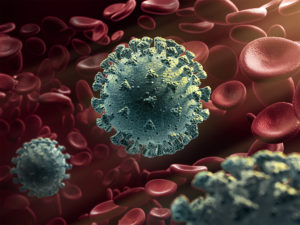Helping Coronavirus Patients Who Lose Their Sense of Smell and Taste

Credit: Getty Images
“Patients typically lose their sense of smell and taste for an obvious reason, such as a head injury or nasal blockage.”
Source: John Hopkins Medicine News release
COVID-19 symptoms vary from person to person, but an overwhelming majority of people infected have one thing in common: They have lost some sense of smell and taste.
Patients typically lose their sense of smell and taste for an obvious reason, such as a head injury or nasal blockage. But the smell and taste loss associated with COVID-19 appears to be unique to the novel coronavirus according to Nicholas Rowan, M.D., an assistant professor of otolaryngology–head and neck surgery at the Johns Hopkins University School of Medicine.
“The most unique finding that occurs is that patients may lose their smell and taste in an isolated fashion,” he says. “It happens all of a sudden and in many cases without any other symptoms.” Emerging data shows the novel coronavirus directly infects the area of the smell nerve, he adds, and this may be how the virus gains entry into its human host.
More worrisome to Rowan is that someone experiencing a loss of smell and taste might not recognize they have COVID-19 and continue to expose themselves to others. In the absence of widely available antibody testing, tracking smell and taste loss may represent a way to track the spread of the virus, as well as an infected patient’s immune response.
Preliminary evidence demonstrates that a majority of people with COVID-19 who lose their sense of smell and taste will recover it, but there is concern it might be permanent for some, according to Rowan. Treatment of smell loss for patients with COVID-19 centers on smell training that can be performed with essential oils or other scents.
“It’s like going to rehab after a stroke or an injury,” says Rowan, whose team has written a forthcoming article reviewing all available treatment options for viral-associated smell loss. “You’re learning to use that body part again.”
Rowan is available to discuss the importance of smell and taste loss in the setting of COVID-19, and his treatment of patients trying to regain their sense of taste and smell, including how he can help their recovery through telemedicine.
For information from Johns Hopkins Medicine about the coronavirus pandemic, visit hopkinsmedicine.org/coronavirus. For information on the coronavirus from throughout the Johns Hopkins enterprise, including the Johns Hopkins Bloomberg School of Public Health and The Johns Hopkins University, visit coronavirus.jhu.edu.
- Decoding COVID-19 - June 13, 2020
- Helping Coronavirus Patients Who Lose Their Sense of Smell and Taste - June 9, 2020
- Census of viral spike protein antigens reveals candidates for use in a COVID-19 vaccine - June 9, 2020



